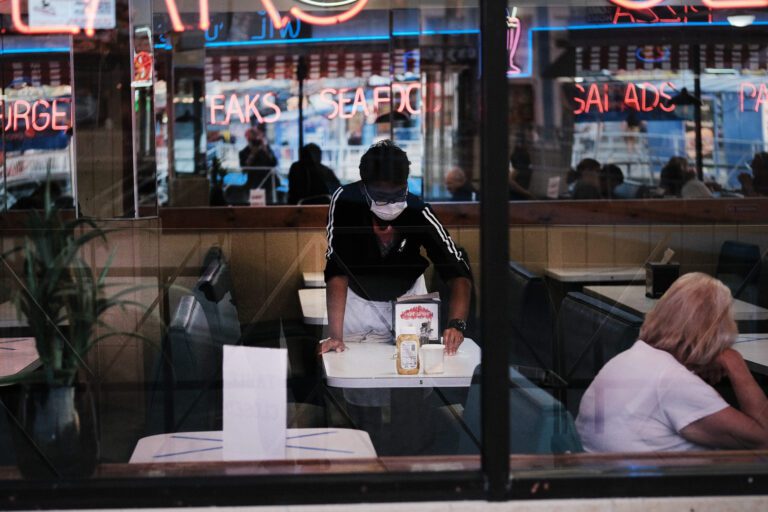New Jersey Lawmakers Consider Minimum Wage Increase for Tipped Workers
Lawmakers in New Jersey are deliberating a significant change to the minimum wage structure for tipped workers, igniting controversy among stakeholders in the food service industry. Advocates for the increase argue it focuses on fairness, while opponents warn it could jeopardize the livelihood of many employees and the sustainability of local restaurants.
What’s at Stake with New Legislation
Currently, New Jersey law permits employers to count tips towards the compliance of the state’s $15.49 per hour minimum wage. However, the proposed bill, known as A5433, seeks to eliminate the tip credit entirely by 2030, meaning employers will need to pay the full minimum wage independent of any tips received.
Key Changes Under A5433:
- Full Minimum Wage Requirement: Employers would pay the full minimum wage without considering tips, effective by 2030.
- Impact on Business: Small businesses fear the bill could lead to layoffs or closures, as operating margins in the industry are often thin.
Industry Responses: A Call for Caution
Organizations like the New Jersey Business and Industry Association have raised alarms about the potential repercussions of the proposed legislation. Denise Beckson, VP of Human Resources at Morey’s Piers and a trustee of the association, expressed her concerns:
“Ending tipped wages is a recipe for disaster… This is a no-win proposal that will negatively impact those it seeks to help.”
The restaurant group managing Lita, Judy’s, and Heirloom Kitchen echoed these concerns in a recent Facebook post:
- Financial Strain: Highlighting that small businesses already function with narrow margins.
- Potential Consequences: Warning of job losses, reduced hours, and increasing menu prices.
Current Wage Landscape
As of now, the average earnings of a tipped employee in New Jersey, particularly servers, reach an impressive $22.40 per hour when including tips. This figure exceeds the mandated minimum wage, illustrating the vital role tips play in their total income.
Lessons from Other Regions
Opponents point to similar measures in other areas that resulted in industry strain. For instance, a raise in the minimum wage in Washington D.C. saw at least 72 restaurant closures and thousands of job losses tied directly to wage increases. Likewise, voters in Massachusetts recently rejected a similar initiative, reflecting widespread concern among hospitality workers regarding job security and the potential reduction in tips.
Concerns Raised by the New Jersey Restaurant and Hospitality Association
The New Jersey Restaurant and Hospitality Association has voiced strong opposition:
- Wage Increase Impact: They argue the legislation could result in a staggering 200% increase in labor costs for small businesses.
- Rallies Against the Bill: Various group members gathered at the statehouse in Trenton to express their dissent ahead of the legislative hearing.
Support for the Legislation
Despite the backlash, some support the proposed measures. Senior policy analyst Peter Chen from the New Jersey Policy Perspective argues that the current tipped wage system is outdated:
“Why do we have a tipped wage in the first place? The tipped wage is a relic… it increases the likelihood that workers can be exploited.”
Conclusion
The debate surrounding the proposed increase in the minimum wage for tipped workers in New Jersey is complex, raising questions about fairness, employee welfare, and the sustainability of local businesses. As lawmakers weigh the potential impacts of the bill, both sides of the argument continue to make compelling cases, highlighting the need for thorough consideration and dialogue.
For further reading, check out more on New Jersey’s wage laws or delve deeper into the impact of wage increases in the hospitality industry.


